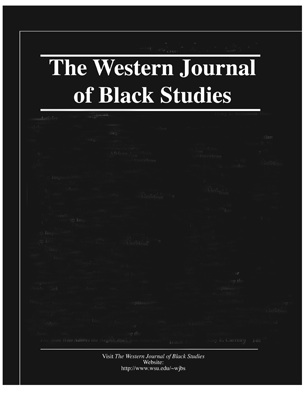Volume 33, Issue 3
Barack Obama's (Im)Perfect Union:
An Analysis of the Strategic Successes and Failures in His Speech on Race
Ebony Utley—California State University, Long Beach
Amy L. Heyse—California State University, Long Beach
In the midst of the Jeremiah Wright controversy, 2008 presidential candidate Barack Obama resolved the political-personal crisis surrounding his racial politics by rhetorically presenting himself as a post-racial candidate. After reviewing the strategies of other African American politicians, we posit that Obama’s adoption of race-neutral rhetoric in his March 18, 2008, speech, “A More Perfect Union,” was a strategic rhetorical choice at the time. However, we also assert that his post-racial politics were compromised by 1) his presentation of a sanitized version of the United States’ history of racial injustice and 2) a tendency to reify harmful racist stereotypes.
pp. 153-163
Barack Obama, Racial Progress, and the Future of Race Relations
in the United States
Luigi Esposito—Barry University, Miami Shores
Laura L. Finley–Barry University, Miami Shores
A plethora of articles in the mainstream press describe Barack Obama’s presidential election as a clear sign of racial progress. While this optimism is, in many respects, well justified, we suggest that many of these discussions, although typically well intended, point to a type of racial progress that operates within the prevailing racial status quo by conflating racial equity with color blindness, racial tolerance, and what Time Wise has recently termed “enlightened exceptionalism.” We argue that framing racial progress in this manner obscures the structural character of US racism and reinforces the reality of White privilege. We also address some of the problems associated with Obama’s color-blind style of governance and conclude with a brief statement about the possibility for an anti-racist future in the United States.
pp. 164-175
They Said It Could/Couldn't Be Done:
Quoted Speculation on the Possibility of a Black President, 1920–2008
Robert Fikes, Jr.—San Diego University
pp. 176-185
The Obama Campaign 2008: A Historical Overview
Malik Simba—California State University, Fresno
The remarkable presidential campaign of Barack Obama rested on a profound cultural shift away from overt racism. The post-World War II era witnessed a Cold War strategy to eliminate de jure Jim Crow. The Democratic Party led the way with its 1948 platform of integration. American sports followed with its integration and the Supreme Court gave these events constitutional legitimacy. Conservatives as well as liberal Americans began, in different degrees, to support the changing times. America’s youth welcomed these changes without restraint. Ultimately, as popular culture established itself with mainstream voters via television and film, a “clean, proper, and multi-cultural” Black face in a high place became very acceptable. This acceptance, coupled with the economic collapse, set the stage for the ascendancy of Barack Obama.
pp. 186-191
The State of Black America on the Heels of the Election of Barack Obama
as the First African American President of the United States
Mamadi Corra—East Carolina University
The significance of race for socioeconomic attainment in the United States is a classic issue in stratification research that continues to be debated. The ascension of Barack Obama to the highest office in the United States, however, has intensified that debate, as Americans mull over the question of whether or not U.S. society has finally reached racial parity. On the heels of the election of Barack Obama as the first African American president of the United States, this paper examines the socioeconomic standing of Black America today. Analyses of the paper reveal significant variations by race and ethnicity, with Asians, Multiracials and Whites indicating substantially higher measures of socioeconomic status than Blacks and Native Americans and Hispanics indicating lower measures. Multivariate analysis of variations in hourly earnings show similar results, with one exception: Net of other controls, the difference in hourly earnings between Native Americans and Blacks is not statistically significant. These findings are discussed in the context of the enduring debate on the significance of race for socioeconomic attainment in contemporary America.
pp. 192-211
Coloring the Blind Spot:
The Urban Black Community As An Object of Racial Discourse
in the Age of Obama
John Robinson III—George Mason University
The emergence of Barack Obama in American politics has signified to many an important breakthrough in race relations. He has found political success by variously embodying the ‘post-civil rights’ cultural values of ‘colorblindness’, ‘race-trancendence’, ‘post-racialism’, and racial hybridity. By exploring both the racial politics of past ‘post-civil rights’ presidential elections, and also the practices of racial discourse animating the 2008 presidential race—particularly the ‘Rev. Wright incident’—I critique the cultural logic of ‘post-civil rights’. I argue that the values that constitute this cultural logic, although appearing progressive, work to Whitewash the structural realities of urban Black communities, and that particularly in regard to racial politics, Obama represents not change but a further step in the wrong direction.
pp. 212-223
Book Reviews
The White Racial Frame:
Centuries of Racial Framing and Counter-Framing
Author: Joe R. Feagin
Reviewer: Athena R. Griffith, Texas A&M University
pp. 224-225
Social Work Practice with African American Families:
An Intergenerational Perspective
Editor: Cheryl Waites
Reviewer: Felix O. Chima, Prairie View A&M University
pp. 226-227
Becoming King:
Martin Luther King Jr. and the Making of a National Leader
Author: Jacson Troy
Reviewer: Ronald Mellado Miller, Brigham Young University–Hawaii
pp. 228-229
Grappling with Diversity
Editors, Susan Schramm-Pate and Rhonda B. Jeffries
Reviewer: John W. Murphy, University of Miami
p. 230

| The WJBS site is normally maintained by Tanya Gonzales. Please feel free to e-mail comments, queries, and suggestions. |
Heading using the h3 tag
Lorem ipsum dolor sit amet, consectetur adipisicing elit, sed do eiusmod tempor incididunt ut labore et dolore magna aliqua. Ut enim ad minim veniam, quis nostrud exercitation ullamco laboris nisi ut aliquip ex ea commodo consequat. Duis aute irure dolor in reprehenderit in voluptate velit esse cillum dolore eu fugiat nulla pariatur. Excepteur sint occaecat cupidatat non proident, sunt in culpa qui officia deserunt mollit anim id est laborum.